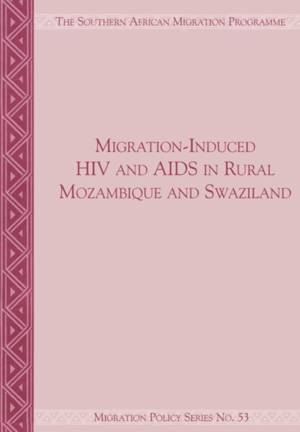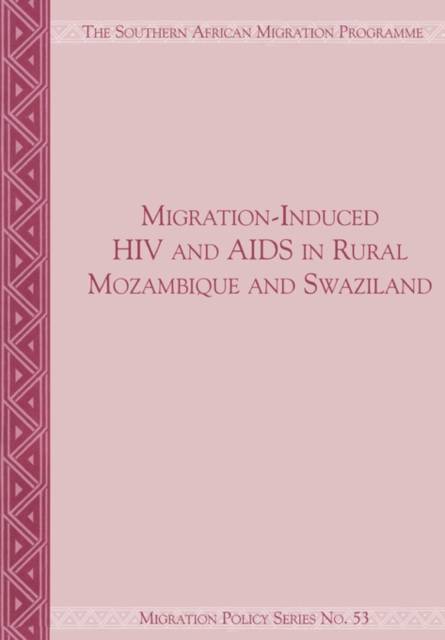
- Retrait en 2 heures
- Assortiment impressionnant
- Paiement sécurisé
- Toujours un magasin près de chez vous
- Retrait gratuit dans votre magasin Club
- 7.000.0000 titres dans notre catalogue
- Payer en toute sécurité
- Toujours un magasin près de chez vous
Migration-Induced HIV and AIDS in Rural Mozambique and Swaziland
Livre broché | Anglais
53,45 €
+ 106 points
Description
South Africa's gold mining workforce has the highest prevalence rates of tuberculosis and HIV infection of any industrial sector in the country. The contract migrant labour system, which has long outlived apartheid, is responsible for this unacceptable situation. The spread of HIV to rural communities in Southern Africa is not well understood. The accepted wisdom is that migrants leave for the mines, engage in high-risk behaviour, contract the virus and return to infect their rural partners. This model fails to deal with the phenomenon of rural-rural transmission and cases of HIV discordance (when the female migrant is infected and the male migrant not). Nor does it reveal whether all rural partners are equally at risk of infection. This study examines the vulnerability of rural partners in southern Mozambique and southern Swaziland, which are two major source areas for migrant miners. It presents the results of surveys with miners and partners in these two sending-areas and affords the opportunity to compare two different mine-sending areas. The two areas are not only geographically and culturally different, they have had contrasting experiences with the mine labour system over the last two decades. The spread of HIV in Southern Africa in the 1990s coincided with major downsizing and retrenchment in the gold mining industry which impacted differently on Mozambique and Swaziland. Swaziland has been in decline as a source of mine migrants while Mozambique remained a relatively stable source of mine migrants. The study therefore aims not only to shed light on vulnerability in mine sending areas, but also to draw out any contrasts that might exist between two mine-sending areas that were inserted into the mine migrant labour system in different ways during the expansion of the HIV epidemic.
Spécifications
Parties prenantes
- Editeur:
Contenu
- Nombre de pages :
- 42
- Langue:
- Anglais
Caractéristiques
- EAN:
- 9781920409494
- Date de parution :
- 21-02-11
- Format:
- Livre broché
- Format numérique:
- Trade paperback (VS)
- Dimensions :
- 170 mm x 244 mm
- Poids :
- 81 g

Seulement chez Librairie Club
+ 106 points sur votre carte client de Librairie Club
Les avis
Nous publions uniquement les avis qui respectent les conditions requises. Consultez nos conditions pour les avis.




